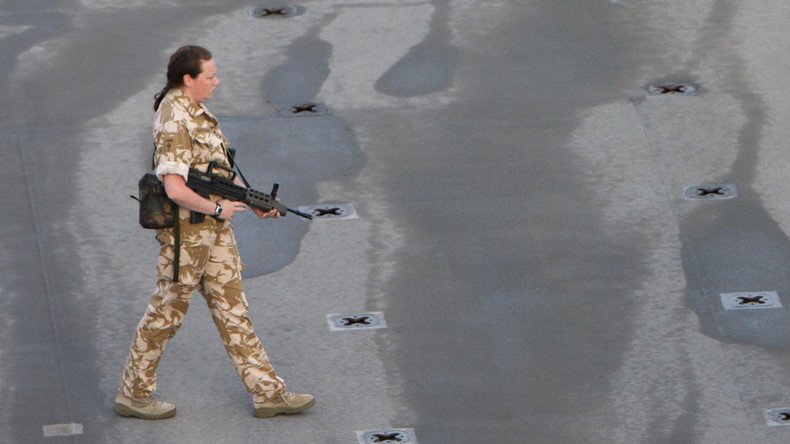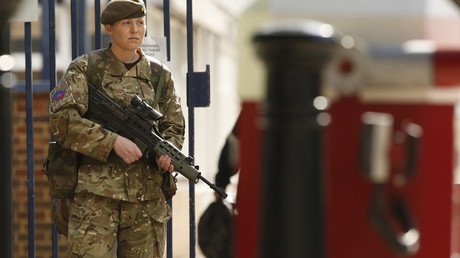Women in combat: Dangerous experiment or gender equality in action?

Even as the world marks International Women’s Day, the role of women in certain workplaces still remains a hot topic, nowhere more starkly than the Armed Forces. RT’s Alena Feklina examines the place of women in armed combat.
Summer 2016 could see women enter combat roles in the British Army for the first time. To date, female soldiers have served in logistics, communications and support roles, but not in ground close combat (GCC).
The Ministry of Defence (MoD) ambition to see equality in action has provoked mixed feelings, drawing opposition from some unexpected quarters.
British Women Against Feminism, for instance, have defended the status quo, spurning the drive for gender parity on the battlefield.
“We respect and are proud of the British Army, but political correctness and feminism, unfortunately, are hitting our MoD,” the group says.
“It is more about penis envy, feminist agenda and political correctness rather than serving our country.”
Even female personnel have objected to the move. Former army officer Ashley Merry told Independent in late 2014: “At the moment we are living in such dangerous times. This is not the time to be experimenting with something new to be politically correct. If it’s not broken, why try and fix it?”
For others, the question of whether women should serve on the front line should be a matter of free choice. Speaking to RT, Veterans Association UK (VAUK) coordinator Pam Kingston said: “Women are already out there, defending our country. The gender does not matter.
“They have to pass medical tests, so if they do, they have to be treated equally with men. Both women and men are responsible for their actions. They know what they are getting themselves into. If they want to fight in the front line, they should be allowed to.”
The MoD’s motives for opening combat roles to women may not be as feminist as they first appear. Promoting equality in combat has been linked with an army recruitment deficit.
“In an army that is much less busy, that adrenaline buzz and sense of adventure is going to go down,” former brigadier Ben Barry told the Financial Times last year, as the government announced cuts to the military budget, leaving the force 3,000 troops short of its intended post-austerity strength.
“Recruiting has struggled as a result and with the public image being one of a shrinking army, potential recruits are even less interested.”
Approached by RT, the MoD denied opening up combat roles to women as a means of addressing a shortage of recruits, a problem it called “non-existent.”
“The Services must maximize the available talent and some of this talent is female,” the MoD told RT.
“There must be true equality of opportunity which in turn will make the Services more attractive as a career.
“The majority of our international partners have opened their ground close combat (GCC) roles to women.”
However, the MoD’s own review of the issue, published in December 2014, suggests women could damage the “cohesion” of the Armed Forces.
“The decision on whether women should be allowed to serve in ground close combat roles is expected by the middle of this year following further physiological research,” the MoD told RT.
“The physiological research program is investigating how training regimes can be constructed to allow women to integrate safely, whilst protecting combat effectiveness.”
Last year, Prime Minister David Cameron ordered the MoD to prepare to welcome female fighters into combat.
“The Defence Secretary and I are united in wanting to see all roles in our Armed Forces opened up to women in 2016,” said Cameron.
“We’ve already lifted a number of barriers in our Armed Forces with the introduction of female submariners and women reaching the highest ranks in all Services. We should finish the job next year and open up ground combat roles to women.”













